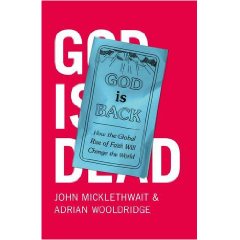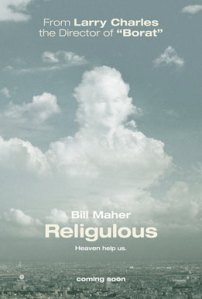 BBC News is debating an increase in homophobic violence on Britain’s streets. The story includes a comment by Michael Cashman MEP.
BBC News is debating an increase in homophobic violence on Britain’s streets. The story includes a comment by Michael Cashman MEP.
Cashman played one of TV’s first gay characters when he appeared as Colin in EastEnders in 1986. He’s quoted as saying that homophobia is being reinforced by faith schools:
“Within faith schools we are still getting a message of anaesthetised hatred – ‘we don’t hate these people but they’re not equal’. If that is said enough, it softens the brains of young people and that’s so dangerous.”
Religion makes the news for all the wrong reasons: sectarian violence; hatred; war; in-fighting about gender roles; arguments about the “correct” biblical view of sexuality. You name it, religion seems to have had an unhelpful influence on it.
If you’re reading this thinking “religion’s bad and wrong”, then: Shock! Horror! – I’m very tempted to agree. You can take your dead end Sunday mornings, doing your duty by turning up to a draughty old building while your heart deadens within you, and you can – well, you can do whatever you like with them. But… (there had to be a but, didn’t there?) I don’t believe that’s what the christian faith is about.
So what is it about? Forget the rules. Forget the religion. My faith is grounded in a relationship with a person. A person who’s an example of how to live right. A role model who offers me a way into “a rich and satisfying life.” Someone who knows me – who really knows me – and who chooses to love me anyway. Someone who has the authority – and chooses to use it – to forgive me my biggest mistakes. Someone who keeps on giving me second chances. Someone who frees me to get up, brush myself down, and try to do better next time.
The person in Jesus.
Christians get a lot of stuff wrong, and unfortunately having a faith doesn’t prevent that. I’d say, unscientifically, that Christians mess up at least as much as (and possibly more than) other people. But the stuff-ups are our doing. They represent what’s wrong with us, not something wrong with Jesus. They’re the reason we need Jesus in the first place.
And what does this Jesus guy have to say about homophobia? Easy. He tells me it’s simple: “Love others as well as you love yourself.”
Does this sound compatible with homophobia? No.
Does it sound compatible with loving and accepting people for who they are? Yes.
Does that mean everyone (me or anyone else) always gets it right? No. But as I’ve said, our stuff-ups are our doing, something wrong with us, not something wrong with Jesus.
The idea that “anaesthetised hatred” might be taught to our young people in the name of faith schooling is both frightening and contrary to Jesus’ way. Hatred, anaesthetised or otherwise, must very clearly be off the educational menu. But are faith schools really to be singled out for any failures here?I’m not sure. OFSTED recently published its report on faith based schools, considering whether the Regulations governing their operation are fit for purpose. The report comments on how schools nurture citizenship and community involvement in their students. According to the report, faith schools seem to be succeeding in culturally relevant education of their students:
“The provision made by all the schools visited to develop their pupils’ spiritual, moral,social and cultural understanding was at least good [and schools desired to promote] their pupils’ spiritual, moral, social and cultural development and to live successfully in modern Britain.”
It seems to me that the presence or otherwise of homophobic violence on our streets is far wider than one of the teaching in faith schools. We need to look wider. How do we as a country, a society, a local community and as individuals behave towards people who are “other”? And how do we teach our children to approach “otherness”? Other faiths, other nationalities, other ethnicities, other political views, other sexual orientations… Maybe our terribly trendy liberalism (“you can do what you like; I can do what I like; just don’t threaten my space and I’ll stay out of yours”) isn’t working.
Jesus once told a story about who we should consider to be our neighbours, called the parable of the Good Samaritan. Jesus scandalised his listeners by casting a Samaritan man, a social outcast, as hero. The Samaritan disregarded cultural norms to help a fellow traveller (who probably wouldn’t normally have accepted) while religious leaders and pillars of the community preferred to steer clear.
I think the message is simple. We need to engage, not to disengage, with things that challenge us. When I next come across something or someone that’s different to my little world, my challenge for myself is to answer question: “This is my neighbour. How can I love this person better?”. I invite you to join me.


 BBC News is debating an increase in
BBC News is debating an increase in  Now here’s a great idea.
Now here’s a great idea. God thrives in the midst of healthy competition. Arguments and stances against God can turn out to be some of the best adverts for him. In the UK, you only have to look at the media coverage generated by arguments by people like Dawkins and the London Buses campaign against God’s existence to see people who might never otherwise have stopped to think about it pause to consider what they really believe. Meanwhile, in countries like as China, where Christianity is outlawed, despite persecution of Jesus’ followers there’s evidence of some of the most remarkable church growth seen anywhere.
God thrives in the midst of healthy competition. Arguments and stances against God can turn out to be some of the best adverts for him. In the UK, you only have to look at the media coverage generated by arguments by people like Dawkins and the London Buses campaign against God’s existence to see people who might never otherwise have stopped to think about it pause to consider what they really believe. Meanwhile, in countries like as China, where Christianity is outlawed, despite persecution of Jesus’ followers there’s evidence of some of the most remarkable church growth seen anywhere. The spirituality of U2 in general and Bono in particular has hit the news a few times. If you regularly fill a pew somewhere, it’s quite likely that you heard about it in church, but if you don’t do church it’s quite possible you haven’t heard that Bono has a “God thing” going on.
The spirituality of U2 in general and Bono in particular has hit the news a few times. If you regularly fill a pew somewhere, it’s quite likely that you heard about it in church, but if you don’t do church it’s quite possible you haven’t heard that Bono has a “God thing” going on. Well, I did it. After my
Well, I did it. After my  I’ve been pondering whether to go and see
I’ve been pondering whether to go and see